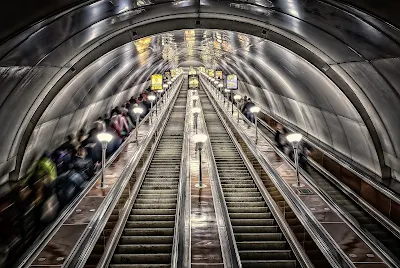In our rapidly advancing world, tunnels have become crucial arteries beneath the surface, facilitating connectivity, trade, and economic development. These subterranean structures are not just engineering marvels but also play a pivotal role in shaping the economic landscape of nations. Let's delve into the underground realm and explore the significance of tunnels in the global economy.
Enhancing Transportation Networks:
Tunnels serve as vital links in transportation infrastructure, connecting regions separated by geographical barriers such as mountains, rivers, or urban landscapes. The Channel Tunnel, connecting the UK and France, exemplifies how tunnels foster international trade and tourism by providing efficient and direct transportation routes.
- Reducing Transit Times and Costs:By bypassing obstacles that would otherwise necessitate long and winding surface routes, tunnels significantly reduce transit times and associated costs. This efficiency boost contributes to streamlined supply chains, fostering economic growth and competitiveness.
- Boosting Trade and Commerce:Tunnels facilitate the movement of goods and people, promoting trade and commerce. The Eurasia Tunnel in Istanbul, for instance, not only eases traffic congestion but also enhances connectivity between the European and Asian sides of the city, fostering economic activities on both fronts.
- Urban Development and Connectivity:Within cities, tunnels play a crucial role in improving transportation efficiency and alleviating congestion. Subway tunnels, like those in Tokyo or New York, are integral to urban development, allowing for the seamless movement of residents and commuters, thereby supporting economic activities.
- Harnessing Natural Resources:Tunnels enable access to remote areas rich in natural resources, such as mines and reservoirs. Mining tunnels, like those in Chile, provide access to valuable minerals, contributing significantly to a nation's economic output.
- Resilience and Disaster Management:Tunnels contribute to economic resilience by providing alternative routes during natural disasters or emergencies. Tunnels designed for disaster management, like the SMART Tunnel in Malaysia, showcase their importance in mitigating flood impacts and safeguarding economic assets.
- Energy Infrastructure:Tunnels are essential for the installation and maintenance of energy infrastructure, such as underground power cables and pipelines. This not only protects these critical assets from external threats but also minimizes visual and environmental impact, contributing to sustainable development.
- Tourism and Cultural Exchange:Tunnels can become iconic landmarks and tourist attractions, attracting visitors and contributing to local economies. The Cu Chi Tunnels in Vietnam, for instance, provide a historical and cultural experience, driving tourism and generating economic opportunities for the region.
- Environmental Sustainability:Tunnels can play a role in environmental conservation by minimizing surface disruption and preserving natural landscapes. This sustainable approach contributes to the overall well-being of ecosystems and supports industries reliant on a healthy environment.
- Innovation and Technological Advancements:The construction and maintenance of tunnels drive innovation in engineering and technology. Advances in tunneling methods, such as the use of tunnel boring machines, not only make construction more efficient but also create opportunities for economic growth in the engineering and construction sectors.
In conclusion, the significance of tunnels in the world's economy cannot be overstated. As we continue to face the challenges of a rapidly evolving global landscape, these underground passages serve as lifelines, fostering connectivity, trade, and sustainable development for the benefit of nations and their citizens.








0 Comments